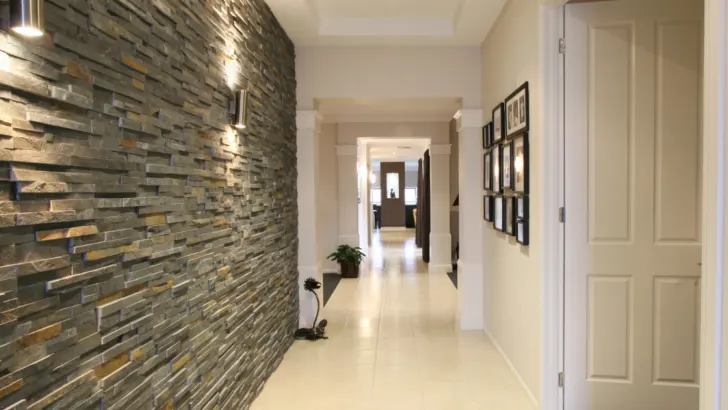
Elevate Your Entryway Stunning Hallway Tiles for Every Style!
Why are Hallway Tiles popular?
Hallway tiles have become increasingly popular in recent years due to their durability, versatility, and aesthetic appeal. Tiles are a practical flooring option that can withstand heavy foot traffic, making them ideal for busy hallways in residential and commercial settings. With a wide variety of colors, patterns, and sizes available, tiles offer endless design possibilities to suit any style and taste.
Additionally, hallway tiles are easy to clean and maintain, making them a convenient choice for busy households and businesses. From traditional ceramic and porcelain tiles to trendy options like mosaic and subway tiles, there is a tile option to fit every hallway and budget. As a result, the popularity of hallway tiles shows no signs of slowing down, and they continue to be a top choice for homeowners and interior designers alike.
Whilst we explore the reasons why you should invest in hallway tiles, why not take a read on our blog around Herringbone Laminate Flooring and Grey Herringbone Floor for your next house makeover project?
What is Hallway Tiles?
Hallway tiles refer to tiles that are used as flooring material in hallways. These tiles can be made from a variety of materials, including ceramic, porcelain, stone, or even glass. They are typically installed in a pattern, either as a single color or a combination of colors, and can be laid out in various designs, such as straight or diagonal lines, checkerboard, or herringbone.
Hallway tiles are preferred by many homeowners and businesses due to their durability and resistance to wear and tear. They are also easy to clean and maintain, making them ideal for high-traffic areas like hallways. In addition, hallway tiles come in a wide range of styles, colors, and sizes, allowing for endless design possibilities. This means that they can be customized to fit any aesthetic or decor theme, from traditional to contemporary, and everything in between. Overall, hallway tiles are a versatile and practical choice for any space that sees a lot of foot traffic.
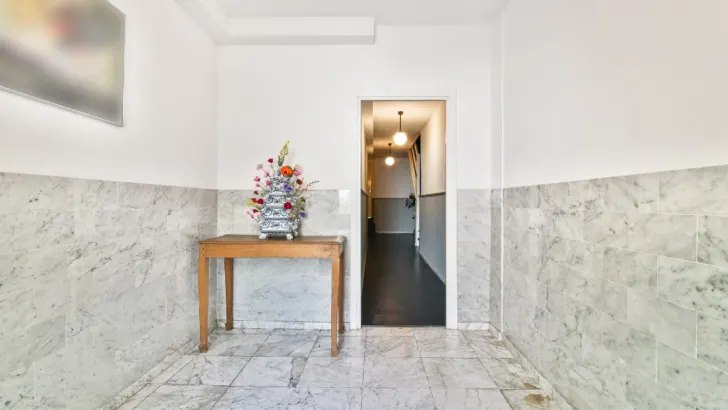
Hallway Tiles Where Beauty Meets Durability.
Is Hallway Tiles a good idea?
Hallway tiles can be a good idea for many reasons. They are durable, easy to maintain, and resistant to wear and tear. These factors make them an ideal choice for high-traffic areas like hallways, where people are constantly walking back and forth. Additionally, hallway tiles come in a wide variety of colors, patterns, and designs, making them a versatile and customizable option for any decor or style.
In terms of practicality, hallway tiles are also a good choice because they are relatively easy to install, and any damaged or broken tiles can be replaced individually without having to redo the entire floor. Additionally, hallway tiles can help improve the safety of a space, as they are slip-resistant and provide better traction than other flooring materials.
While hallway tiles may have some advantages, it’s important to consider your individual needs and preferences before making a final decision. For example, if you prefer a softer and more comfortable flooring material, tiles may not be the best option for you. Additionally, tiles can be cold and hard, which may not be ideal in certain climates or for those who prefer a warmer feel underfoot. Overall, it’s a good idea to consider all factors before deciding whether hallway tiles are the right choice for your space.
Can Hallway Tiles be placed on a hardwood floor?
Yes, hallway tiles can be placed on top of a hardwood floor as long as the surface is properly prepared. The hardwood floor needs to be clean, dry, level, and free of any loose or damaged boards. If the hardwood floor is not level, it may need to be sanded down or leveled with a self-leveling compound to ensure a smooth surface for the tiles to adhere to.
Once the hardwood floor is prepared, a layer of cement board or other appropriate underlayment material can be installed on top of the hardwood to create a stable surface for the tiles. This will help prevent the tiles from cracking or shifting over time.
It’s important to note that adding hallway tiles on top of a hardwood floor will add additional weight and height to the floor, so it’s important to make sure that the subfloor can support the weight of the new flooring material. Additionally, the transition from the hardwood to the tile should be properly addressed to ensure a smooth and seamless transition between the two materials.
Overall, while it is possible to install hallway tiles on top of a hardwood floor, it’s important to ensure that the proper preparation steps are taken to ensure a successful installation. It may be helpful to consult with a professional installer to ensure that the job is done correctly.
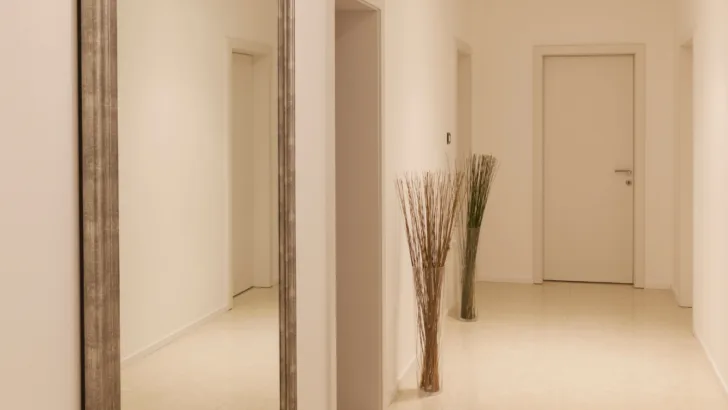
Transform Your Hallway with Elegant Tile Solutions.
What type of tiles are best for the hallway?
Many types of tiles are well-suited for hallways. Here are some of the best options:
- Ceramic tiles: Ceramic tiles are a popular choice as hallway tiles due to their durability and resistance to wear and tear. They come in a wide range of colors and patterns, making them a versatile choice for any decor.
- Porcelain tiles: Porcelain hallway tiles are similar to ceramic tiles but are denser and more resistant to moisture and stains. They are also highly durable and available in many different colors and designs.
- Stone tiles: Stone hallway tiles, such as granite, marble, or travertine, offer a natural and elegant look to hallways. They are highly durable and can withstand heavy traffic. However, they can be more expensive than other tile options.
- Mosaic tiles: Mosaic tiles are small, decorative tiles that can be used to create intricate patterns and designs. They are available in a variety of materials, including glass, ceramic, and stone, and can be used to add a decorative touch to a hallway.
- Subway tiles: Subway tiles are a classic option that can add a timeless look to a hallway. They are typically made of ceramic or porcelain and are available in many different colors and sizes.
Ultimately, the best type of hallway tiles will depend on your individual needs and preferences. It’s important to consider factors such as durability, style, and budget when selecting the right type of tile for your space.
Do Hallway Tiles crack?
Hallway tiles can crack, just like any other flooring material. Some factors can contribute to tile cracking, including poor installation, excessive weight or pressure, uneven subflooring, and shifts in the foundation of the building.
One of the most common reasons for hallway tiles cracking is improper installation. If the tiles are not installed correctly, they may not be level, which can cause them to crack under the weight of foot traffic. Similarly, if the subflooring is not level, it can cause stress on the tiles, leading to cracking.
Another factor that can contribute to hallway tiles cracking is excessive weight or pressure on the tiles. For example, if heavy furniture is placed directly on the tiles without proper support or padding, it can cause the tiles to crack over time.
Environmental factors, such as changes in temperature and humidity, can also contribute to hallway tiles cracking. If the building foundation shifts or settles, it can cause stress on the tiles and lead to cracking.
To prevent hallway tiles from cracking, it’s important to have the tiles installed by a professional, ensure that the subflooring is level, and avoid placing excessive weight or pressure on the tiles. Additionally, using high-quality grout and sealing the tiles can help protect them from moisture and reduce the risk of cracking.
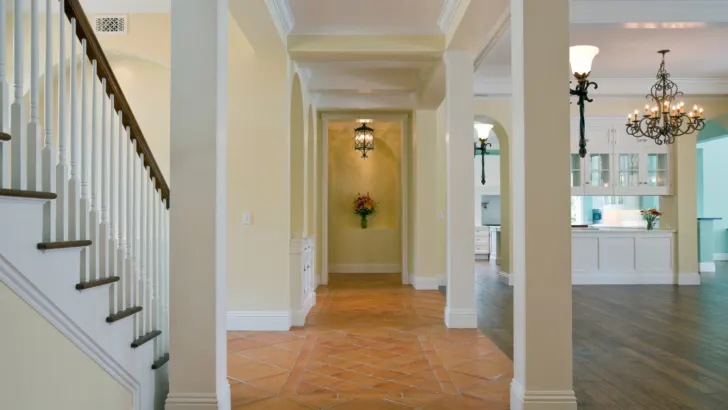
Step into Style Hallway Tiles That Impress.
Is Hallway Tiles durable?
Yes, hallway tiles are generally considered to be very durable. Tiles are often made of materials that are resistant to wear and tear, such as ceramic, porcelain, or stone. They can withstand heavy foot traffic, making them an ideal choice for hallways, which are typically high-traffic areas in a home or building.
In addition to their resistance to wear and tear, hallway tiles are also relatively easy to maintain. They can be swept or vacuumed to remove dirt and debris and can be cleaned with a damp mop or cloth. Additionally, hallway tiles are resistant to stains, making them a good option for areas where spills are common.
Another advantage of hallway tiles is that they can be replaced individually if they become damaged or worn, without having to replace the entire floor. This can save time and money over the long term, as it is typically more cost-effective to replace a few tiles than to redo an entire flooring surface.
Overall, hallway tiles are a durable and practical flooring option for many spaces. They can withstand heavy traffic and are relatively easy to maintain, making them a popular choice for both residential and commercial settings.
Is laminate or tiles better for the hallway?
Both laminate and tiles can be good options for a hallway, and the best choice will depend on various factors.
Laminate flooring is generally less expensive than tile and can be easier to install. It’s also relatively durable and easy to maintain, making it a good option for high-traffic areas like hallways. Laminate flooring is available in a wide range of colors and patterns, so it can be a versatile choice for any decor.
However, laminate flooring is not as durable as tile and can be more prone to scratches and dents. Additionally, laminate flooring can be damaged by moisture, so it may not be the best option for areas that are prone to spills or moisture buildup.
On the other hand, hallway tiles are highly durable and can withstand heavy foot traffic. They are resistant to scratches, dents, and moisture, making them a good option for hallways. Tiles are also available in many different colors, patterns, and textures, so they can be a versatile choice for any decor.
However, hallway tiles can be more expensive than laminate flooring and can be more difficult to install. Additionally, hallway tiles can be cold and hard underfoot, which may not be as comfortable as laminate flooring.
In general, if durability and resistance to moisture are the main priorities, hallway tiles may be the better choice for a hallway. However, if cost and ease of installation are more important, laminate flooring may be a better option. Ultimately, the best choice will depend on individual needs and preferences.
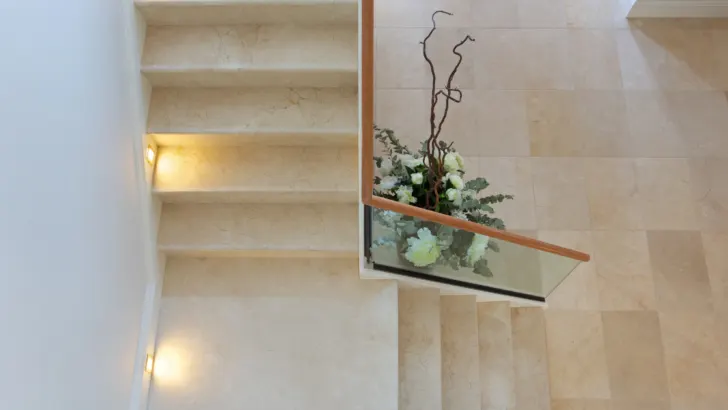
Hallway Tiles Making Every Step Memorable.
What is the best color for Hallway Tiles?
The best color for hallway tiles will depend on various factors, including the size and style of the hallway, the amount of natural light it receives, and personal preferences. Here are a few tips for selecting the best color for hallway tiles:
- Lighter colors can make a small hallway feel more spacious, while darker colors can create a cozy, intimate feeling. Consider the size of the hallway and how you want it to feel when choosing a tile color.
- Neutral colors such as beige, gray, or white can be a good choice for a timeless and classic look. They also tend to be versatile and can work well with a variety of decor styles.
- Bold colors such as red, blue, or green can add a pop of personality and create a statement in the hallway. However, it’s important to consider whether the color will clash with other elements in the hallway or be too overwhelming.
- Consider the amount of natural light the hallway receives. If it’s a darker space, lighter-colored tiles can help reflect light and make the space feel brighter.
- Think about the overall style and decor of the home or building. If there is a consistent color scheme or design style throughout, consider choosing tiles that complement or enhance that style.
Ultimately, the best color for hallway tiles will depend on individual preferences and the specific needs of the space. It can be helpful to take samples home and view them in the hallway under different lighting conditions to get a sense of how they will look in the space.
Which way to lay Hallway Tiles on the hardwood floor?
The direction in which hallway tiles should be laid on a hardwood floor depends on personal preference and the layout of the space. Here are a few tips for selecting the best direction to lay hallway tiles on a hardwood floor:
- Consider the layout of the hallway. If the hallway is long and narrow, laying the tiles parallel to the walls can help make the space feel wider.
- Think about the direction of natural light. If the hallway receives a lot of natural light, laying the hallway tiles perpendicular to the windows or skylights can help create a visual flow and emphasize the light source.
- Look at the overall style of the home or building. If the flooring in adjacent rooms is laid in a certain direction, consider continuing that direction into the hallway to create a sense of continuity and flow.
- Take into account any architectural features of the space. For example, if there is a focal point such as a fireplace or staircase, consider laying the tiles in a way that emphasizes that feature.
- Experiment with different layouts. Lay out some tiles in different directions to see which layout looks best and feels most comfortable in the space.
Ultimately, there is no right or wrong way to lay hallway tiles on a hardwood floor. It’s important to consider the specific needs of the space and choose a layout that complements the overall design of the home or building.
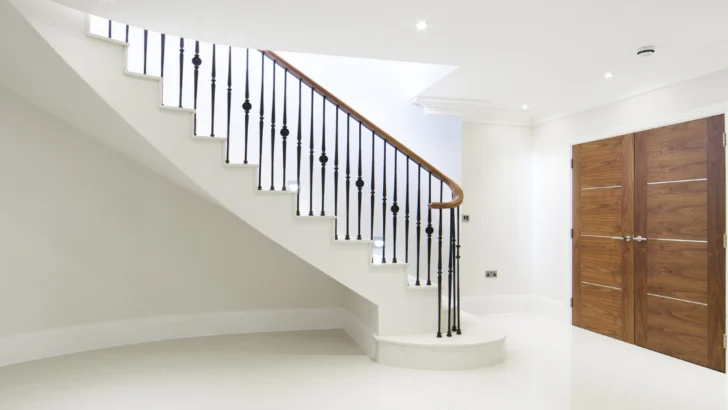
Create Lasting Impressions with Exquisite Hallway Tiles.
Can you have Hallway Tiles on the wall?
Yes, it’s possible to use hallway tiles on the walls, and it can be a great way to add visual interest and texture to a hallway. Here are a few ideas for incorporating hallway tiles on the walls:
- Create an accent wall. Choose a section of the hallway and cover it with tiles in a bold color or pattern. This can create a focal point and add interest to the space.
- Cover the entire wall. If you have a long, blank wall in the hallway, covering it with tiles can be a great way to add texture and visual interest.
- Use tiles as wainscoting. Install tiles on the lower portion of the wall, typically about one-third to one-half of the wall height, and pair it with paint or wallpaper above. This can add depth and dimension to the hallway.
- Create a tile backsplash. If you have a console table or other surface in the hallway, consider installing tiles as a backsplash to protect the wall and add visual interest.
When using tiles on the walls of a hallway, it’s important to choose a tile that complements the flooring and other design elements in the space. It can also be helpful to work with a professional installer to ensure that the tiles are properly installed and sealed for durability and longevity.
How to lay Hallway Tiles?
Here are the basic steps to lay hallway tiles:
- Prepare the surface: Before laying hallway tiles, make sure the surface is clean, dry, and free of any debris. If necessary, use a floor scraper to remove any old flooring or adhesive.
- Measure the space: Measure the length and width of the hallway to determine the amount of tiles needed. Add 10% to account for cuts and waste.
- Plan the layout: Use chalk lines or tile spacers to plan the layout of the tiles. Start in the center of the hallway and work outward to ensure that the tiles are evenly spaced.
- Apply adhesive: Apply tile adhesive to a small section of the hallway, using a notched trowel to create a consistent layer of adhesive. Start in the center of the hallway and work outward.
- Lay the tiles: Carefully lay the tiles on top of the adhesive, using spacers to ensure that they are evenly spaced. Use a level to ensure that the tiles are level and flush with each other.
- Cut the tiles: Use a tile cutter or wet saw to cut tiles as needed to fit around corners or edges.
- Grout the tiles: Once the adhesive has dried, remove the spacers and apply grout between the tiles. Use a grout float to apply the grout, and a damp sponge to remove any excess.
- Seal the tiles: After the grout has dried, apply a tile sealer to protect the tiles and grout from moisture and stains.
It’s important to follow the manufacturer’s instructions for the specific tiles and adhesive being used, as well as any local building codes and regulations. If you are unsure about how to lay hallway tiles, it can be helpful to work with a professional installer.
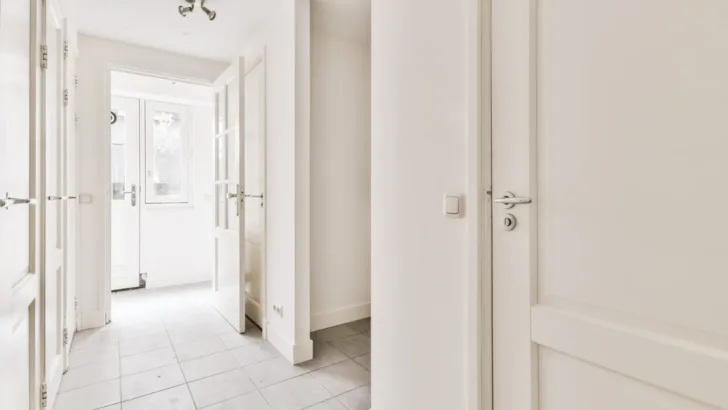
Elegance Starts at the Front Door Hallway Tiles for You.
What color of Hallway Tiles makes the hallway look bigger?
Lighter colors tend to make a space look larger and brighter, so using light-colored hallway tiles can help create the illusion of a larger hallway. Here are a few color options that can make a hallway look bigger:
- White: White hallway tiles can create a bright and airy feel in the space, making it feel more open and spacious.
- Beige: Beige or other neutral-colored tiles can create a warm and inviting feel in the hallway, without making the space feel too closed in.
- Light gray: Light gray hallway tiles can create a modern and sophisticated feel in the hallway, while still making the space feel open and bright.
- Light blue or green: Soft, muted shades of blue or green can create a calming and relaxing feel in the hallway, and can also help make the space feel larger and more open.
When choosing a color for hallway tiles, it’s important to consider the overall style and color scheme of the home or building, as well as personal preference. Additionally, using the same or similar color on the walls and ceiling can help create a seamless look and further enhance the illusion of a larger space.
Where can you buy Hallway Tiles?
There are many places to buy hallway tiles. Here are a few options:
-
The Tile Shop: A leading US-based tile retailer with a wide selection of hallway tiles to suit various styles and budgets.
-
Floor & Decor: Explore an extensive range of hallway tiles at Floor & Decor, known for quality and affordability.
-
Home Depot: A well-known home improvement giant offering a variety of building and decorating products, including hallway tiles.
-
Lowe’s: Another major US home improvement retailer that provides a selection of hallway tiles for your project.
-
Wayfair: Discover a vast online marketplace with numerous hallway tile options, styles, and price ranges.
These are just a few examples, and many other retailers and tile specialists throughout the country offer hallway tiles. It’s a good idea to shop around and compare prices and styles before making a decision. Additionally, working with a professional installer can help ensure that the tiles are properly installed for maximum durability and longevity.
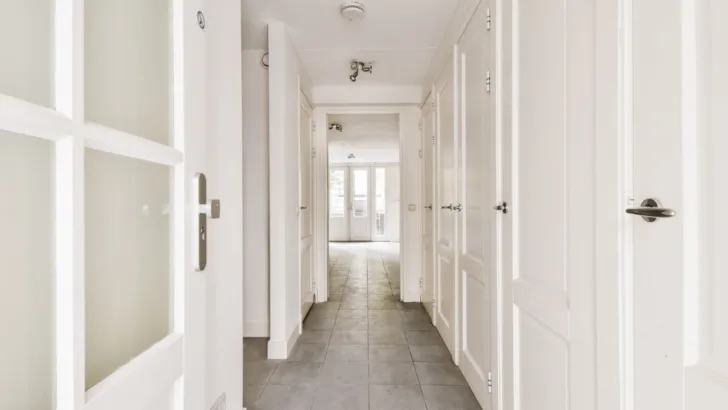
Hallway Tiles The First Step to a Beautiful Home.
How much do Hallway Tiles cost?
The cost of hallway tiles can vary depending on a variety of factors, such as the type of tile, the size of the hallway, and the complexity of the installation. Here are some general price ranges for hallway tiles:
- Ceramic tiles: Ceramic tiles are a popular and affordable option for hallway flooring. Prices can range from around $10 to $30 per square meter.
- Porcelain tiles: Porcelain hallway tiles are more durable and water-resistant than ceramic tiles and typically cost more. Prices can range from around $20 to $50 per square meter.
- Natural stone tiles: Natural stone hallway tiles, such as marble or slate, are more expensive than ceramic or porcelain tiles but can add a touch of luxury to a hallway. Prices can range from around $30 to $100 per square meter.
- Mosaic tiles: Mosaic hallway tiles can add a decorative touch to a hallway, but can be more expensive and time-consuming to install. Prices can range from around $50 to $150 per square meter.
It’s important to keep in mind that these are general price ranges and that the actual cost of hallway tiles will depend on the specific type of tile, the size of the hallway, and other factors. Additionally, installation costs will need to be factored in, which can vary depending on the complexity of the installation and the experience of the installer.
Can you have Hallway Tiles with a border?
Yes, it is possible to have hallway tiles with a border. Adding a border to hallway tiles can create a decorative and stylish effect, and can help define the space and add visual interest. Here are a few tips on incorporating a border into a hallway tile design:
- Choose a contrasting color: A border that contrasts with the main tile color can create a striking and eye-catching effect. For example, if the main tile is a light color, a darker border can create a dramatic contrast.
- Choose a different shape or size: A border made of tiles that are a different shape or size than the main tile can create a unique and interesting effect. For example, a border made of small mosaic tiles can add texture and depth to a hallway.
- Use a patterned tile: If the main tile is a solid color, using a patterned tile for the border can add visual interest and create a more decorative effect.
- Keep it simple: When designing a border for hallway tiles, it’s important not to overdo it. A simple border that complements the main tile can be just as effective as a more complex design.
Incorporating a border into a hallway tile design can add a unique and personalized touch to the space, but it’s important to work with a professional installer to ensure that the border is properly incorporated into the design for maximum durability and longevity.
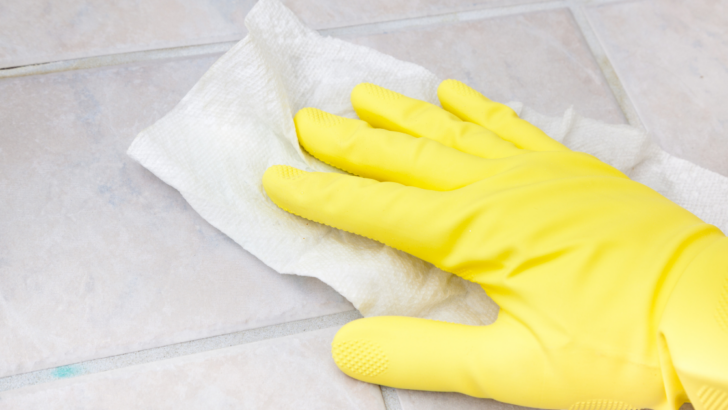
Hints & Tips On Keeping Your Hallway Tiles Pristine!
How to clean Hallway Tiles?
Cleaning hallway tiles is relatively easy, and regular cleaning can help maintain their appearance and extend their lifespan. Here are some steps to clean hallway tiles:
- Sweep or vacuum the floor to remove any loose dirt and debris.
- Fill a bucket with warm water and add a few drops of a mild detergent or tile cleaner. Avoid using harsh chemicals or abrasive cleaners, as these can damage the tiles.
- Dip a mop or sponge into the cleaning solution and wring out any excess water.
- Begin mopping the floor, starting from the farthest corner of the room and working your way toward the door.
- Rinse the mop or sponge frequently in the cleaning solution and wring out any excess water to avoid leaving streaks or residue on the tiles.
- Once you have mopped the entire floor, rinse it thoroughly with clean water to remove any soap or cleaner residue.
- Dry the floor with a clean, dry mop or towel to prevent water spots.
For tougher stains or grime buildup, you can use a specialized tile cleaner or a mixture of baking soda and water to scrub the affected area with a soft-bristled brush. Rinse the area thoroughly with clean water and dry it with a clean towel.
It’s important to clean up spills and stains as soon as possible to prevent them from setting into the tiles. Additionally, avoid using abrasive tools or harsh chemicals that can scratch or damage the tiles. With regular cleaning and proper maintenance, hallway tiles can remain looking great for many years.
Are Hallway Tiles dated or timeless?
Hallway tiles can be both dated and timeless, depending on the style and design of the tile. Some tile designs and colors may be more closely associated with a particular period or trend and may look dated after a few years. On the other hand, some hallway tile designs and colors are more classic and versatile and can work well in a variety of design styles and periods.
For example, plain white or cream-colored hallway tiles with a simple square or rectangular shape are a classic and timeless choice for hallway tiles that can work well in both traditional and modern design styles. Similarly, natural stone tiles, such as marble or slate, can add a touch of luxury and elegance to a hallway and are unlikely to look dated over time.
On the other hand, brightly colored or patterned hallway tiles may be more closely associated with a particular period or design trend and may start to look dated after a few years.
Ultimately, the choice of hallway tiles will depend on personal taste and style preferences. However, it’s a good idea to choose tiles that are versatile and timeless to ensure that they will continue to look great for many years to come.
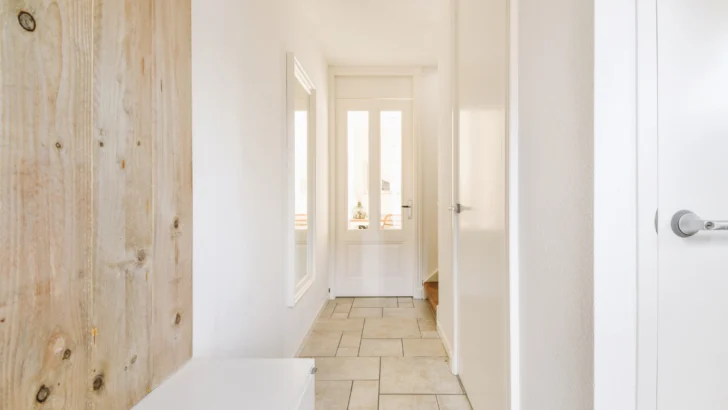
Discover Hallway Tiles That Speak Your Style.
What is the takeaway opinion of interior designers and experts when it comes to Hallway Tiles?
The opinion of interior designers and experts on hallway tiles is generally positive. Hallway tiles can add a touch of style, durability, and practicality to a hallway, making it an ideal choice for high-traffic areas in a home or commercial space. Tiles come in a wide range of colors, shapes, and sizes, allowing homeowners and designers to create a custom look that fits their personal style and design preferences.
However, like any flooring material, hallway tiles have their pros and cons, and it’s important to choose the right type of tile and ensure proper installation to ensure maximum durability and longevity. Interior designers and experts recommend working with a professional installer to ensure that the tiles are installed correctly and that the subfloor is properly prepared to prevent cracking or other damage.
Overall, hallway tiles can be a great choice for homeowners and designers looking for a durable, stylish, and practical flooring option for their hallway. The key is to choose a high-quality tile that is appropriate for the space and to work with a professional installer to ensure that the tiles are properly installed for maximum longevity and durability.
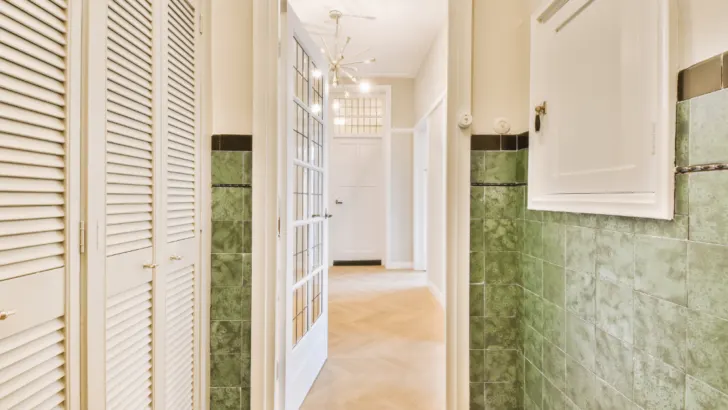
Elevate Your Entry Welcome Home with Striking Hallway Tiles.
If you’re looking for more inspiration for your home improvement projects, be sure to check out our home improvement blog. We offer a wide range of articles on various topics such as Grey Kitchen Tiles in kitchen remodels, Green Bathroom Tiles in bathroom renovations, and outdoor living spaces. Our team of experts provides detailed information and tutorials on how to achieve the look you want, whether it’s a modern, traditional, or rustic style. Additionally, we also provide tips and tricks to help you save money, time, and energy during your renovation projects. So don’t hesitate, to visit our blog and start planning your next home improvement project today!
I hope this helps! Let me know if you have any other questions about Hallway Tiles in the comments section below.

sigara bırakma
Monday 30th of June 2025
Sigara Bırakma | Kc Psikolojimoraterapi, sigara bıraktırma, Rezonans
güvenlik sistemleri
Monday 30th of June 2025
En İyi Güvenlik | Güvenlik Kameraları güvenlik kamerası, gizli kamera, kamera sistemleri, güvenlik sistemleri
gizli kamera
Sunday 29th of June 2025
Perpa Kameram | Güvenlik Kameraları güvenlik kamerası, gizli kamera, kamera sistemleri, güvenlik sistemleri
van haberleri
Sunday 29th of June 2025
Van Haberleri tarafsız haber yayıncılığı anlayışıyla doğru ve güvenilir bilgilere ulaşmanızı sağlar. Van Sesi Gazetesi yıllardır Van ve çevresinde güvenilir haberleri sunma konusundaki kararlılığıyla bilinir. Van Olay, Van Gündem, Van Haber, Van haberleri, Gündem haberleri, van erciş, van gevaş, van edremit
dişçi istanbul
Sunday 29th of June 2025
Dent Global İstanbul ortodontri, acil diş çekimi, 20 lik diş çekimi, diş estetik